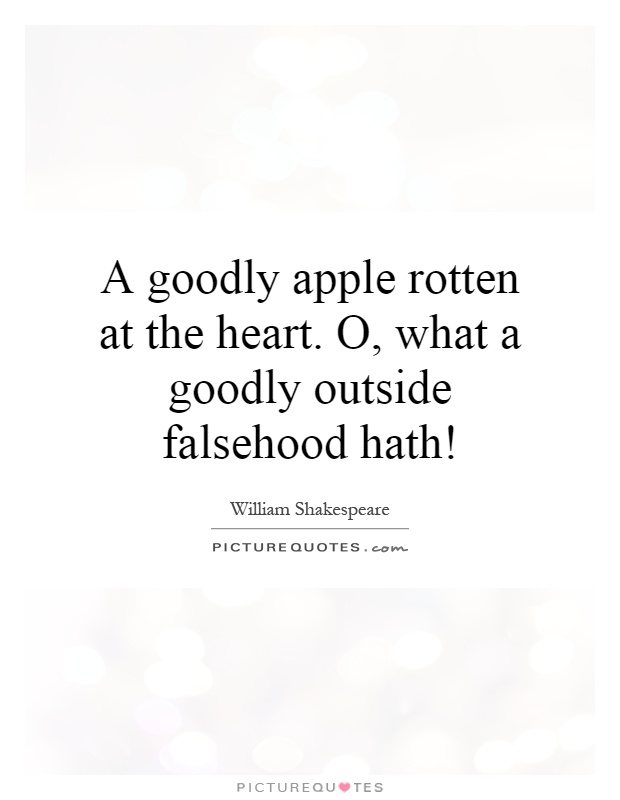A goodly apple rotten at the heart. O, what a goodly outside falsehood hath!

A goodly apple rotten at the heart. O, what a goodly outside falsehood hath!
The quote “A goodly apple rotten at the heart. O, what a goodly outside falsehood hath!” is from William Shakespeare’s play, The Merchant of Venice. In this line, the character Jessica is reflecting on the deceptive nature of appearances and how things may seem good on the outside but be corrupt or rotten on the inside.This theme of deception and appearance versus reality is a common motif in Shakespeare’s works. Throughout his plays, characters often use disguises, deceit, and manipulation to achieve their goals or hide their true intentions. The quote from The Merchant of Venice is a powerful reminder that things are not always as they seem and that one should not judge solely based on outward appearances.
The metaphor of a “goodly apple rotten at the heart” is particularly striking because it evokes the image of something beautiful and appealing on the outside, but spoiled and corrupt within. This can be applied to people, situations, or even institutions that may seem perfect or virtuous at first glance, but upon closer inspection, reveal their true nature.












 Friendship Quotes
Friendship Quotes Love Quotes
Love Quotes Life Quotes
Life Quotes Funny Quotes
Funny Quotes Motivational Quotes
Motivational Quotes Inspirational Quotes
Inspirational Quotes